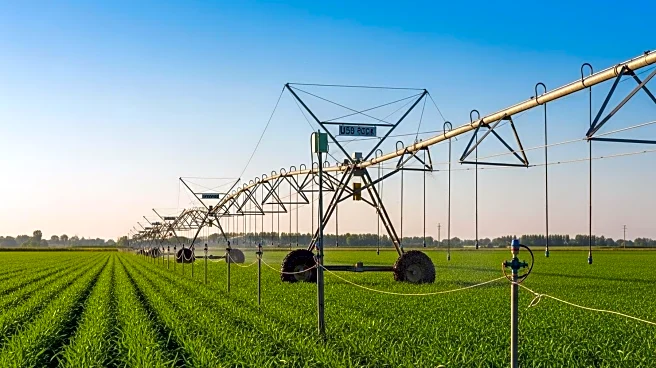What's Happening?
Sabelo Mdziniso, Administrative Assistant at the Incomati and Maputo Watercourse Commission (INMACOM), shared insights into the challenges and solutions related to water management across three nations: South Africa, Eswatini, and Mozambique. The commission is responsible for managing transboundary water resources, focusing on data sharing, environmental monitoring, and coordinating responses to floods and droughts. This data sharing is crucial for farmers who rely on accurate information for agricultural planning. The commission operates under the Southern African Development Community (SADC) framework, reporting to the council of ministers. Mdziniso highlighted the pollution crisis affecting rivers, with waste from human activities posing a significant threat to livestock and water recycling systems. To address this, INMACOM plans to launch community-based waste management initiatives in 2026, funded by the Global Environment Facility (GEF).
Why It's Important?
The work of INMACOM is vital for ensuring sustainable water management in regions heavily dependent on agriculture. Accurate data sharing helps farmers make informed decisions, which is crucial for their livelihoods. The pollution crisis, if left unchecked, could severely impact agricultural productivity and water quality, affecting both human and animal health. The planned community-based waste management initiatives aim to tackle pollution at its source, fostering local ownership and sustainable practices. Additionally, climate change poses a significant threat to water availability, making the commission's efforts to adapt and plan for future scenarios even more critical.
What's Next?
INMACOM's upcoming waste management initiatives, set to launch in 2026, will focus on engaging communities in high-pollution areas to develop sustainable waste management systems. This approach aims to build local ownership and address pollution effectively. The commission will continue to invest in research and partnerships to understand long-term water scarcity trends and develop adaptation strategies for farmers. These efforts will provide practical guidance for agricultural decision-making, helping farmers adapt to changing conditions and ensure water security.
Beyond the Headlines
The broader implications of INMACOM's work include fostering regional cooperation and resilience against climate change impacts. By engaging communities in sustainable practices, the commission not only addresses immediate pollution issues but also promotes environmental stewardship. The focus on research and adaptation strategies highlights the importance of scientific evidence in shaping policy and practice, ensuring that responses to water management challenges are effective and sustainable.









